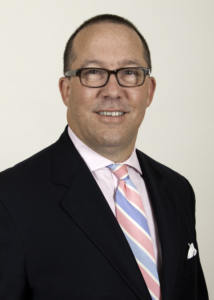“If there’s a key word that resonates with me, it’s ‘fairness,’” says Adam Quinton. He feels that while most workplaces claim to be a meritocracy, there are a host of issues you’ll notice, if you’re paying attention, that make it not quite as meritocratic as you thought.
And that’s an issue that he has seen play out particularly in the context of early-stage financing, the space where he works. “If you’re looking at the companies of tomorrow, there’s a lot of evidence based on who gets funding that it’s not a level playing field.”
Understanding the Diversity Barriers
With a long history in financial services, from big companies to startups, Quinton has seen many scenarios where diversity has been important, and is currently working to champion diversity and level the playing field in the venture capital arena.
In fact, more than 80 percent of the companies in which he has invested have at least one female founder. This compares to the average of one in five startups which receive seed funding and just one in 10 startups which receive venture capital funding.
“Unless you believe that female entrepreneurs are not as capable, as innovative or as driven as men, then that disparity seems weird and feels unfair. However, to me it also feels like a compelling investing opportunity others are missing.”
He notes that most early stage investors are not as objective as they think they are, and that Silicon Valley’s belief that it is the ultimate meritocracy is part of its problem. In early-stage investing, this phenomenon is known as “patent recognition” – a polite way of saying investors tend to be biased towards founders and ideas that they have seen succeed in the past. Hence, he describes, “the stereotype of the 20-something white guy wear in a hoodie from an elite school as the model Silicon Valley entrepreneur.” That contributes to the reality that women, people of color and others outside that stereotype find fund raising much harder.
Besides being unfair, he laments the huge source of economic loss and of innovation resulting from venture capitalists essentially sidelining more than half of the population. “That lack of fairness has non-trivial societal and economic consequences,” he notes.
Rooting Out Unconscious Bias as a Sponsor and a Mentor
To Quinton, being a sponsor is crucially about advocating for people who are “not in the room.” And while he accepts that mentoring is a valuable way to offer advice, he argues that sponsorship is a more important relationship because the sponsor is staking their reputation on their protégé. “It takes courage to put your own credibility on the line for someone else; even when it’s the right thing to do, there is an element of risk.”
To combat unconscious bias, Quinton says it’s key to understand that even with the best intentions we all are certain to be impacted by it ourselves; as he says “it is part of the human condition.” Hence he shares his view that engaging in personal discovery will serve you well. For example, even though you may think you’re the least racist person you know, embedded in your unconscious brain may be something you might not like. “You can’t advise other people how to act without knowing yourself.”
And that, he says, is how you can start “being the change you want to see.” To the extent you understand yourself and the complex issues that surround decision-making, you can be more be sensitive to bias and stand up to it when you see it, even in a situation that might look trivial. For example, if you’re in a meeting and a man interrupts a woman, you have to be conscious of this “micro inequity.” In fact, research shows that men interrupt or talk over women twice as often as women interrupt or talk over men. To disrupt this example of bias, he suggests a participant speak up and say, “Hey, I didn’t get all of your point Susan; where were you headed?”
Another issue he notes that might appear to be trivial is where people sit in meetings. He sees a tendency for the Type A person, usually male, to sit next to the leader in the “seat of power.” That’s where he believes it is up to the meeting leader to conduct the micro-intervention, being conscious of who sits where and making sure that voices get heard equitably.
And it is important to question your own decisions. “When you have a discussion about a promotion, reflect on why you suggested one colleague over another. Was it for fact-based and objective reasons, or were you jumping to conclusions based on your own biases?” he says.
Breaking Barriers through Mentorship
One suggestion Quinton has for mentorship is to work with someone at least two degrees of difference from you – where difference means both obvious physical factors, such as gender, race and age, but also factors that are not as obvious which may include disability or veteran status. In his view, making the conscious effort to mentor people who are “more” different brings the mentor greater understanding of the situations and challenges of others, as well hopefully as bringing benefits to the mentees.
Words of Advice for Leaders
Finally, he recommends that leaders “Think like a fox and understand like a hedgehog.” When considering decision making, people can typically be categorized into one of two buckets: Hedgehogs have one strong and fixed view of the world, while foxes are a more flexible and prepared to change their minds.
We want motivated leaders who can stick with the mission, he says, but that can be a derailing characteristic if they don’t think like a fox and react when there’s other mounting information that conflicts with their approach.
“The world is a complicated and unpredictable place,” Quinton says. “The leaders of the companies I work with have a strong vision of where they want to get to, of course. But the best ones are constantly questioning and testing their ideas and approaches. They are not locked into one strategy for all time and hence can pivot when the evidence — and their gut — point in a new direction.”

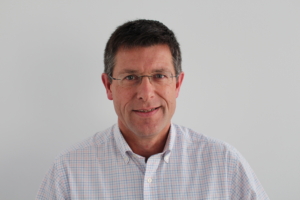


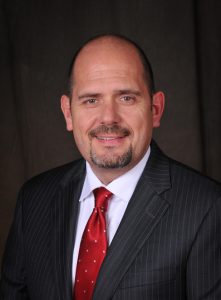

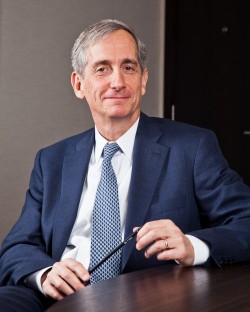

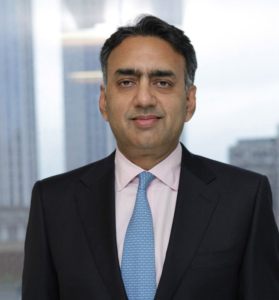 “If there’s a fundamental disconnect in the area of diversity, businesses will not have the outcomes they could, as there will be significant lapses in their performance,” says Citi’s Naveed Sultan. “That’s how important I believe this issue is, not only to me, but to our organization as a whole.”
“If there’s a fundamental disconnect in the area of diversity, businesses will not have the outcomes they could, as there will be significant lapses in their performance,” says Citi’s Naveed Sultan. “That’s how important I believe this issue is, not only to me, but to our organization as a whole.”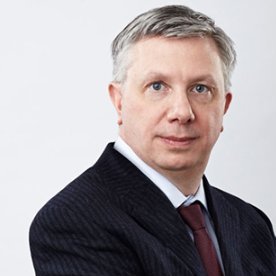 As content director for the Advisor and Financial Services Group at Rogers Publishing, Porado oversees three teams that produce trade publications read by financial industry professionals in Canada. He’s been with the company for 10 years, holding six different positions. Prior to joining Rogers, Porado worked for a variety of publications in the United States in the finance, architecture and political industries and also covered general news at United Press.
As content director for the Advisor and Financial Services Group at Rogers Publishing, Porado oversees three teams that produce trade publications read by financial industry professionals in Canada. He’s been with the company for 10 years, holding six different positions. Prior to joining Rogers, Porado worked for a variety of publications in the United States in the finance, architecture and political industries and also covered general news at United Press.